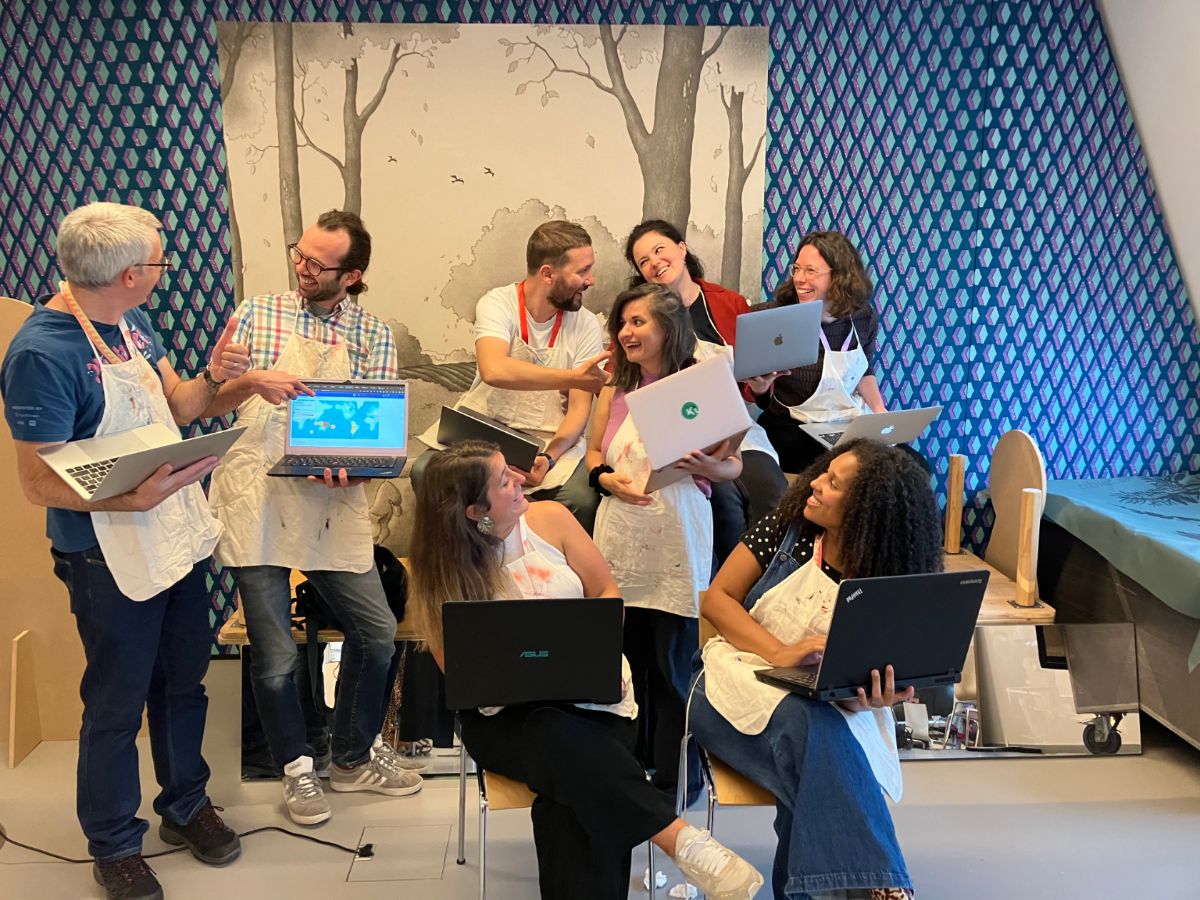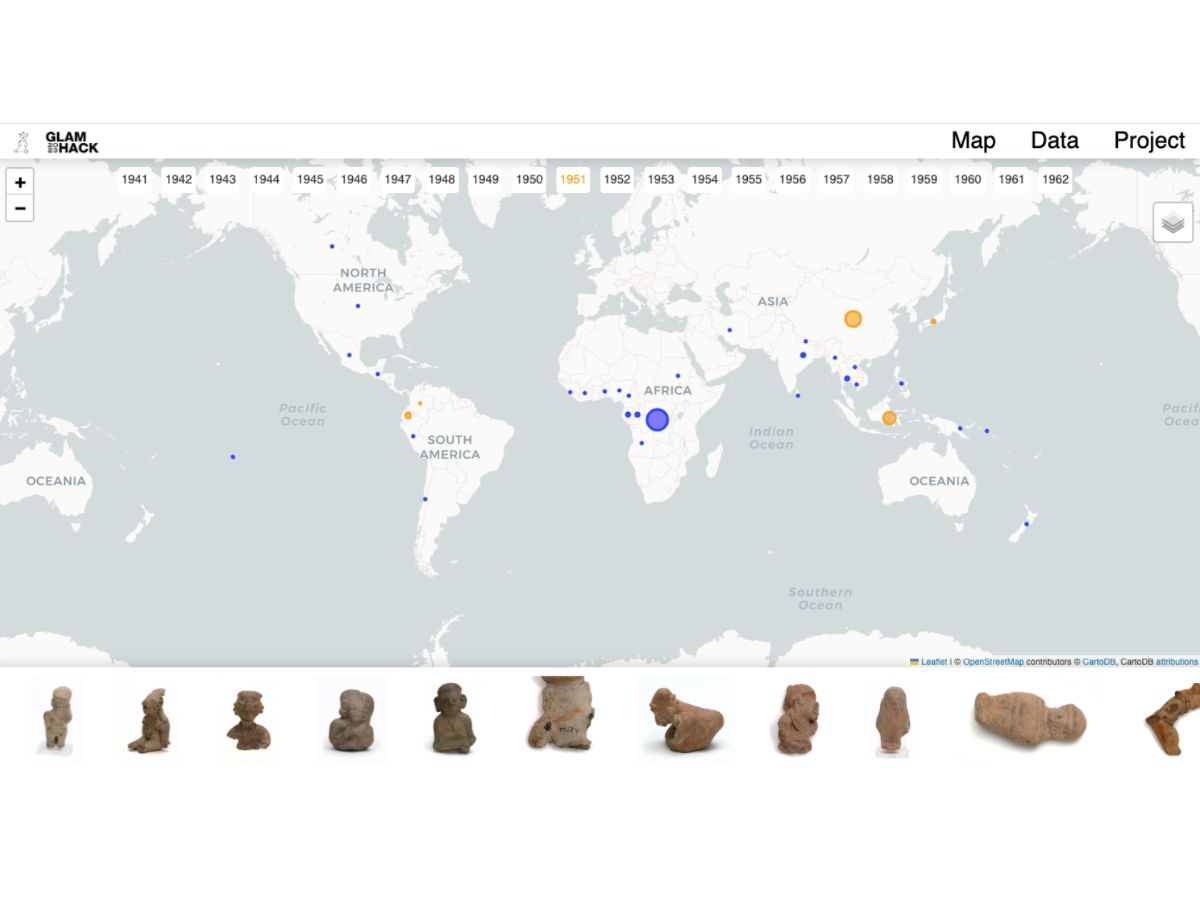How to visualize our collections (fast)?
Joining a hackaton to tackle this challenge
The Ethnographic Museum at the University of Zurich recently partook in a hackathon – an event that brings together hackers, i.e. clever programmers, to undertake a marathon,testing their endurance as they work together to build new software. The event, organized by OpenGlam and hosted by the MEG from 29th-30th Sept brought together cultural institutions, software developers, digital humanists, artists, Wikipedians and other interested parties to promote openness among galleries, libraries, archives and museums.
We challenged data experts to develop a quick and creative solution to communicate to the general public where the museum collections come from and during which period they arrived in the museum. (Check out the challenge.) An inter-disciplinary team came together to develop a map interface that would visualize the museum collections. The team drew on multiple skills sets, and included: editor, historian, graphic designer, anthropologists, provenance researchers, digital humanity folk, art historians, curator-mediator, climate physicist, museum folk, data consultant, librarian, physical anthropologist.
How can we harness digital tools to better engage with various publics? How to balance the call for open data with the respect of source community intellectual property? What can AI do for ethnographic museums? We gathered a lot of open questions on how we will engage as a museum with future digitalisation – but just as much inspiration and expertise from the talented GlamHack participants – a huge thanks to them all!
Team members of our museum challenge “Visualizing Collections & Enabling Collaborations”: Marie Barras, Pierre-Louis Blanchard, Levyn Bürki, Anthony Chenevard, Auriane Gouzowski, Thomas Guignard, Alice Hertzog, Sandrine Huet, Fassaleh Taa
Images:
Visualisation of the cartography developed by the GlamHack team using the software OpenRefine and Jupyter Notebook
Lots of screen-time, not so much sleep: the project team cooking up some script for the Ethnographic Museum at the University of Zurich.
Völkerkundemuseum UZH


